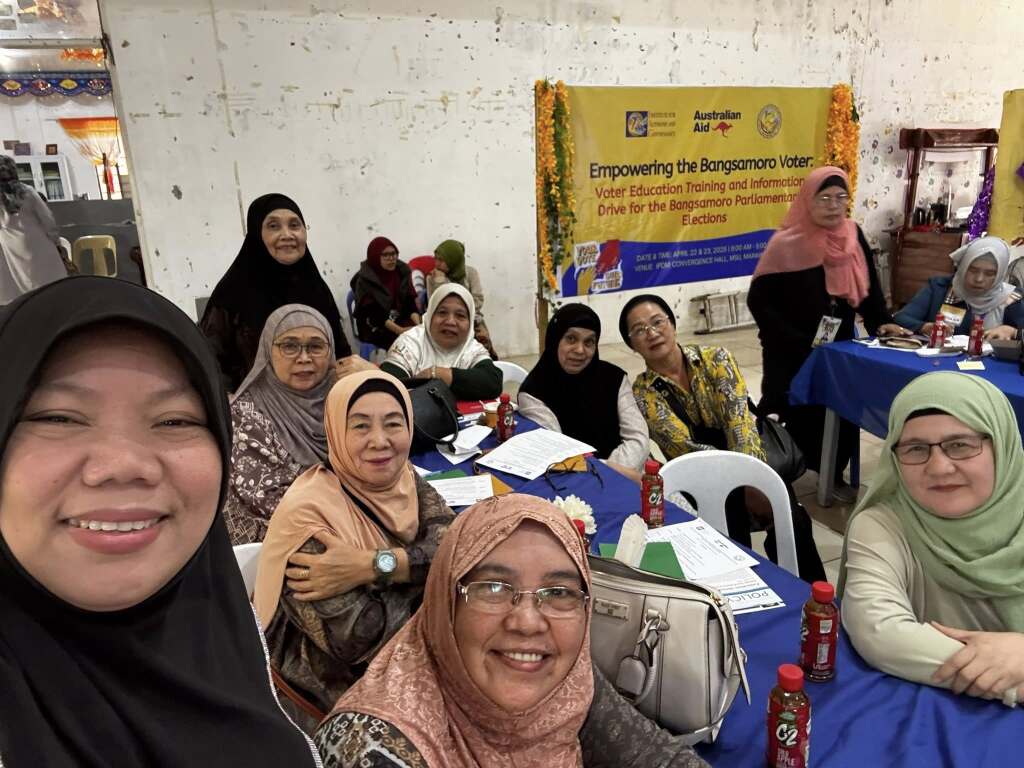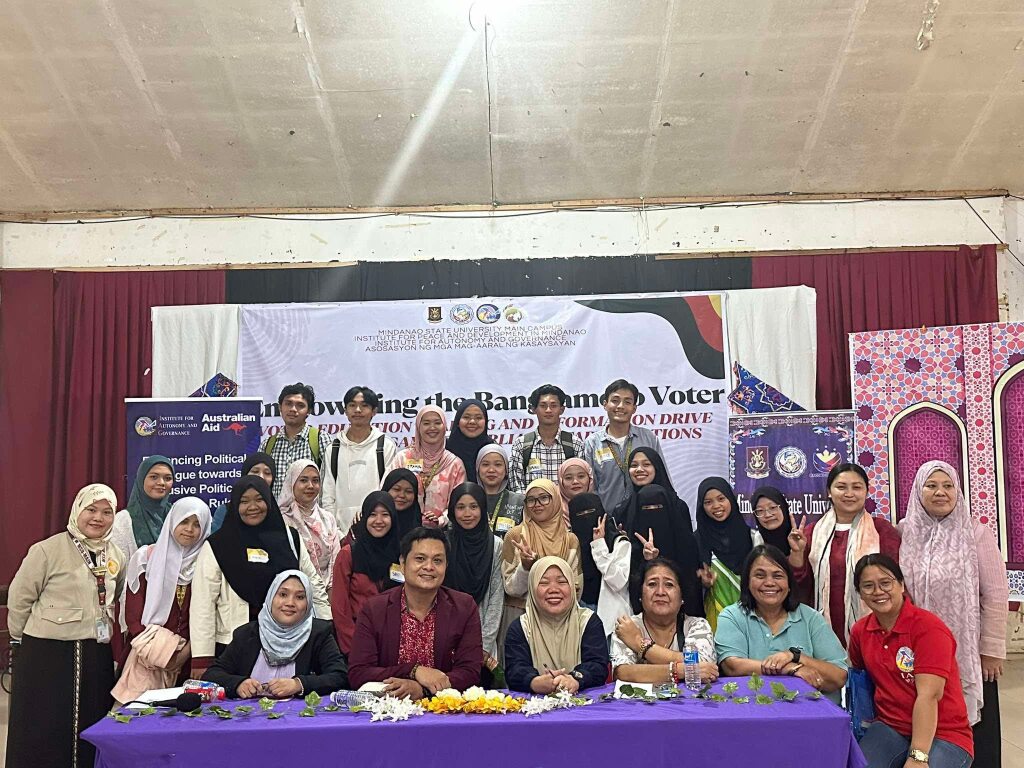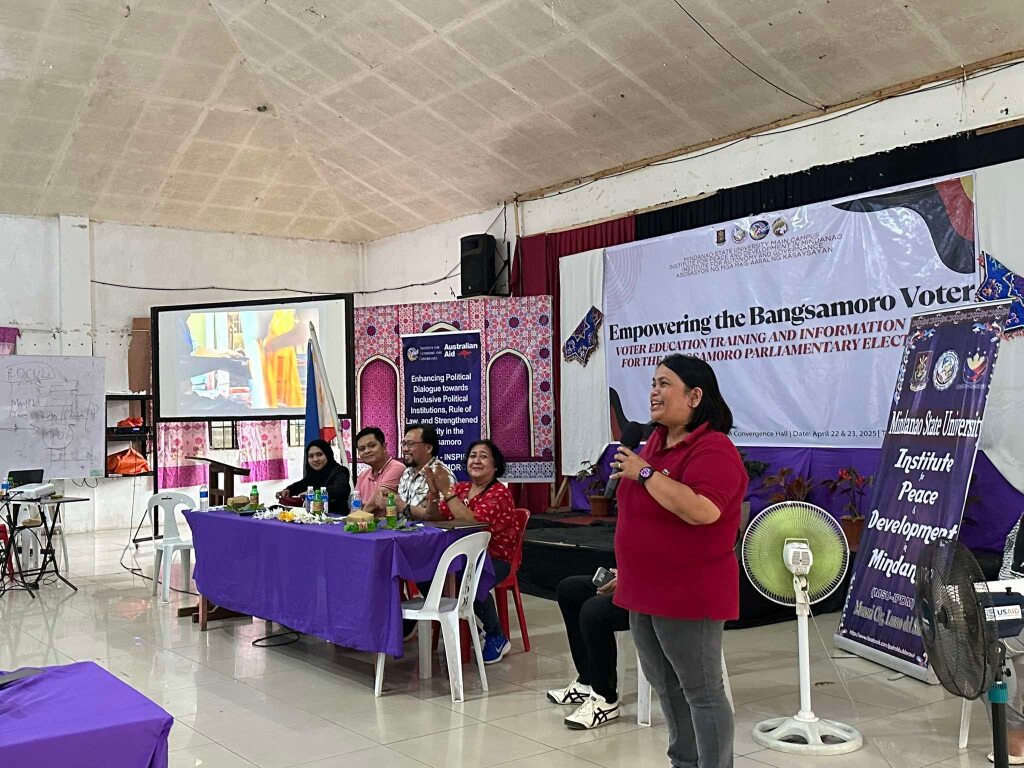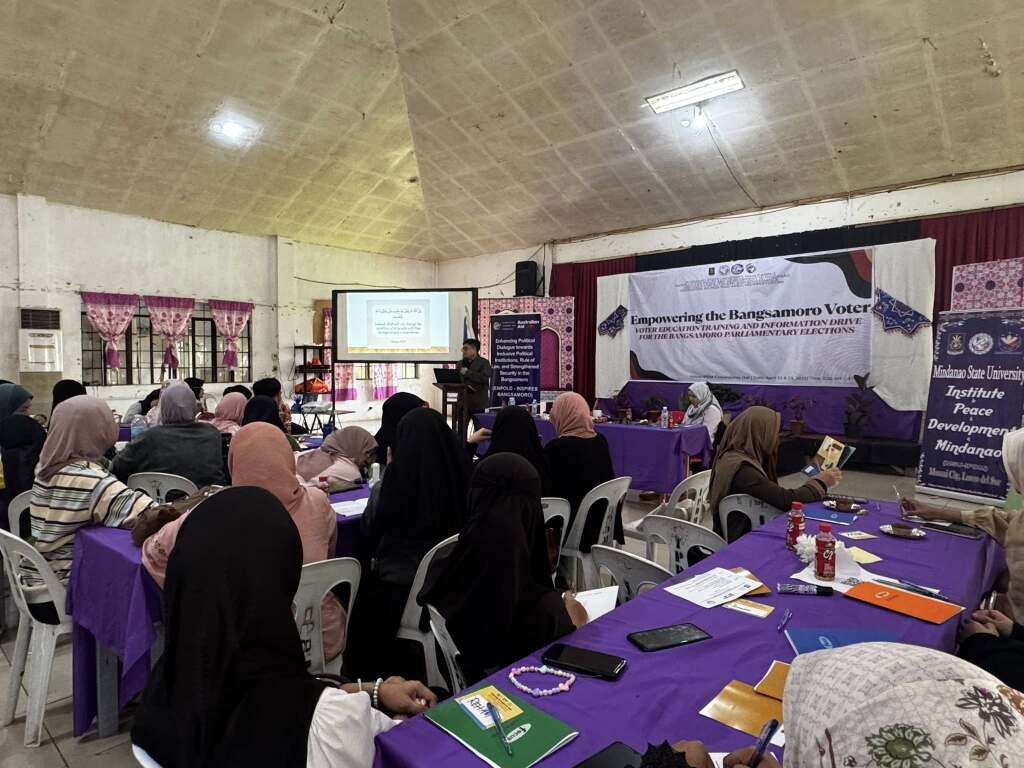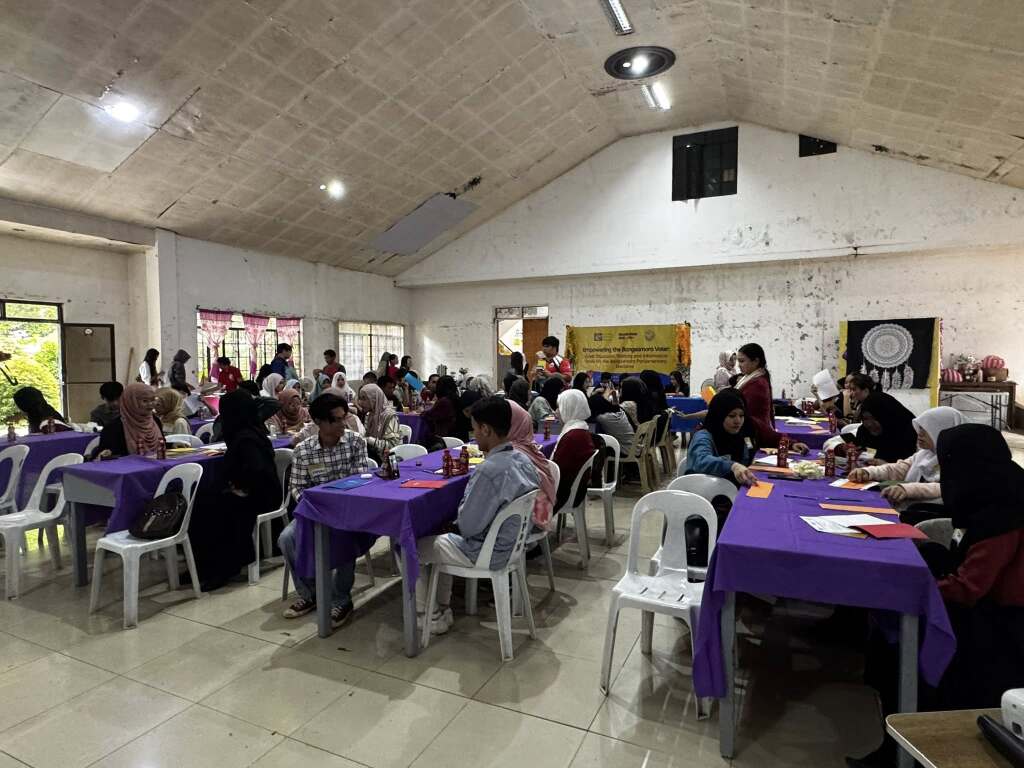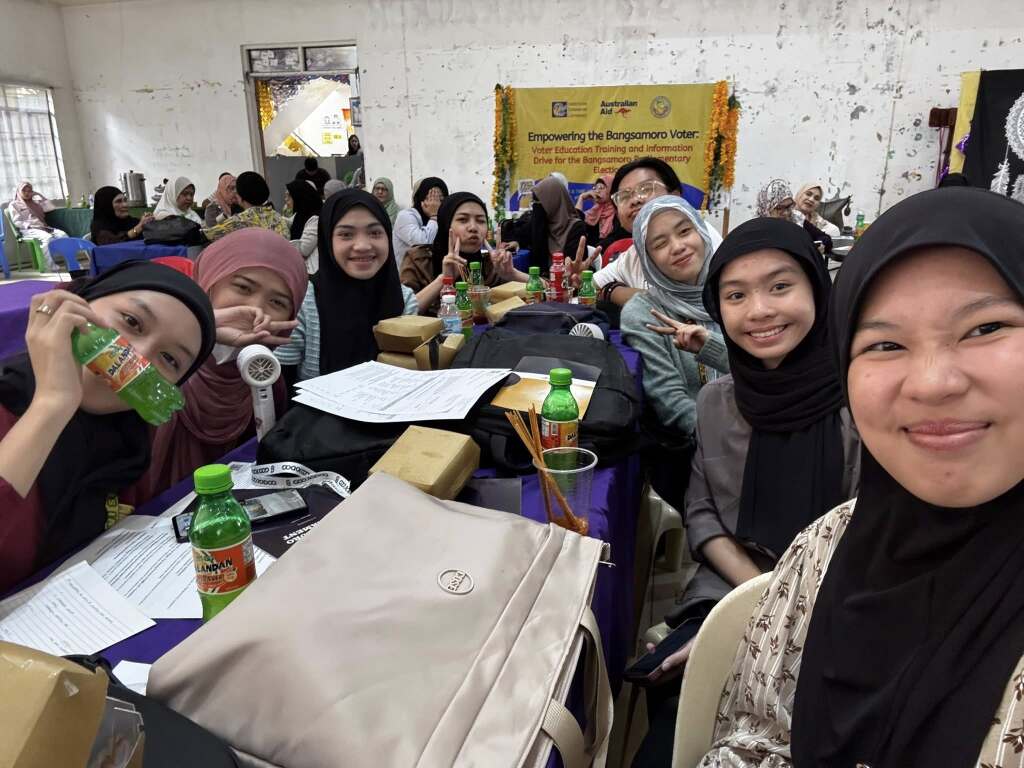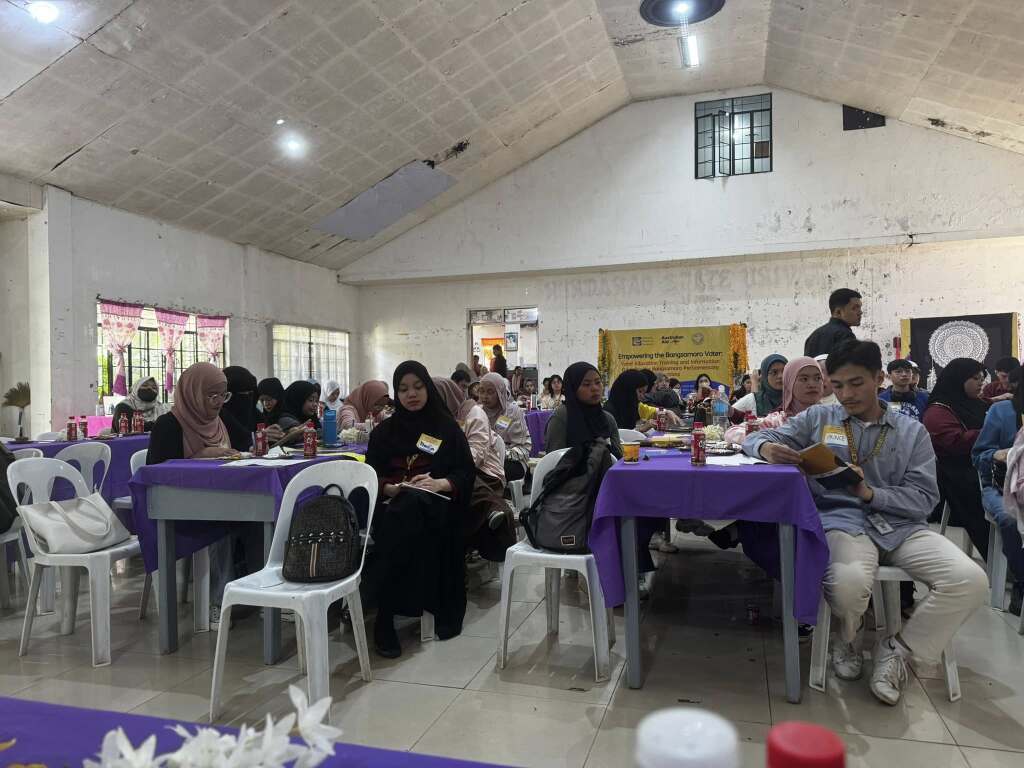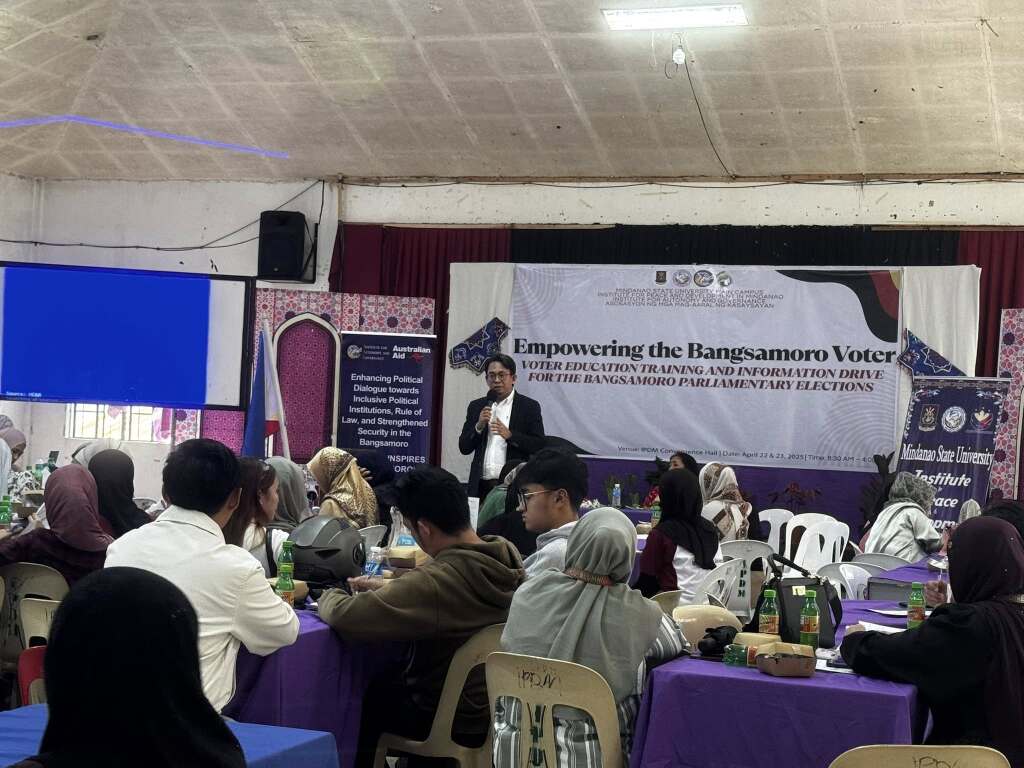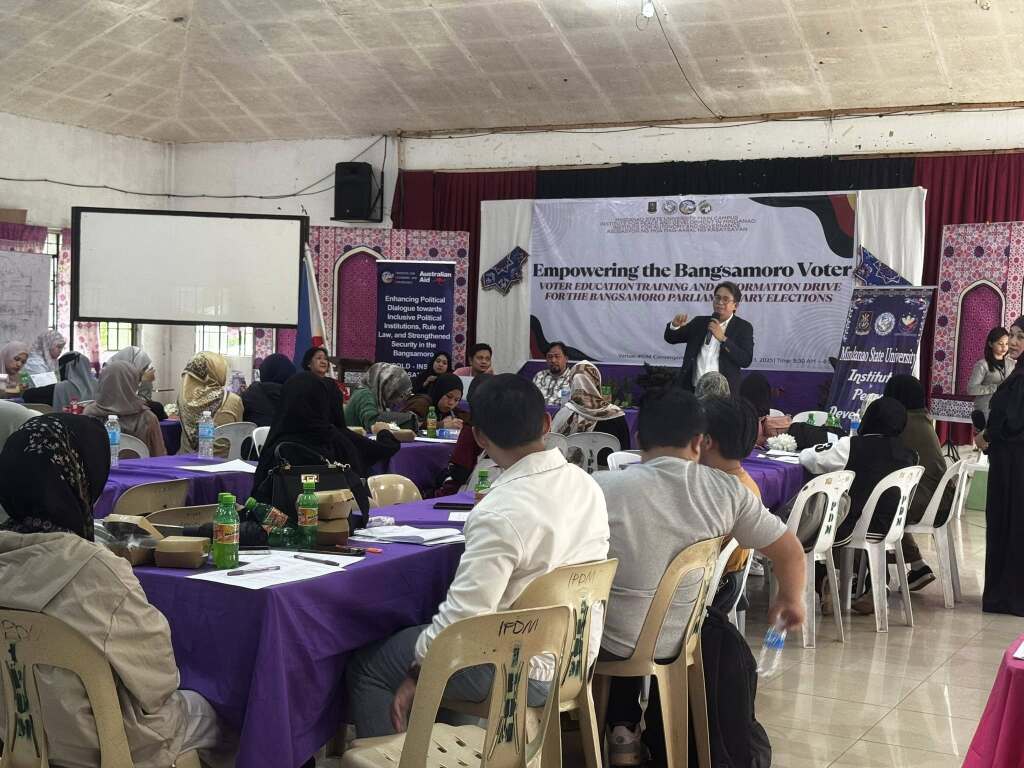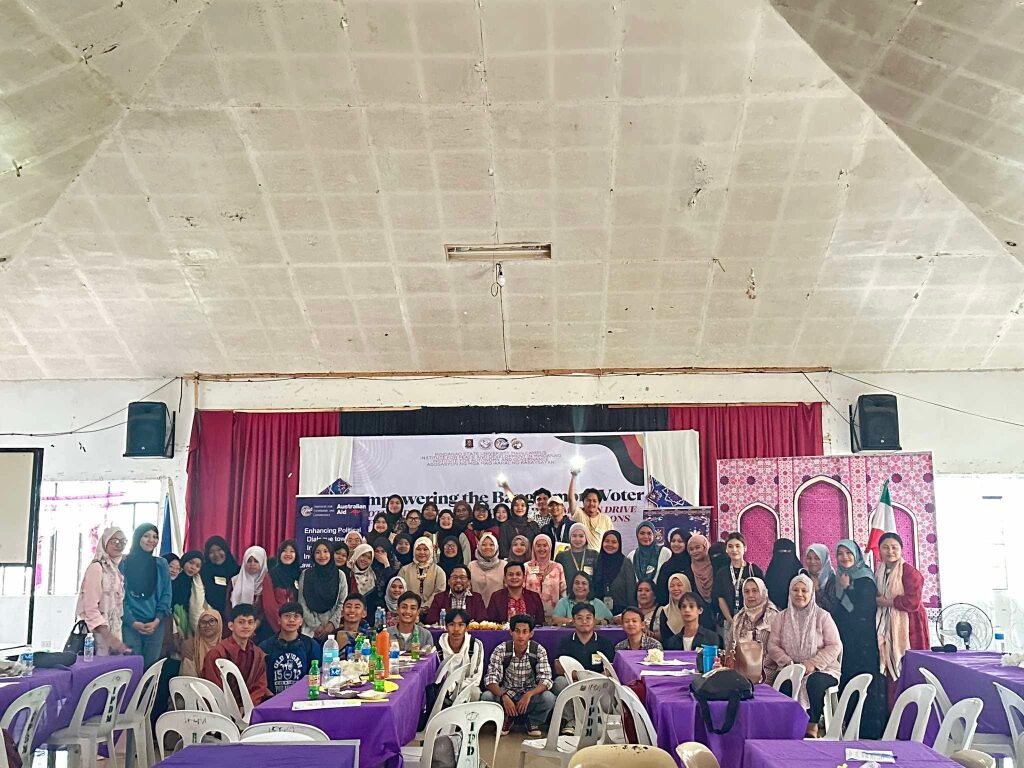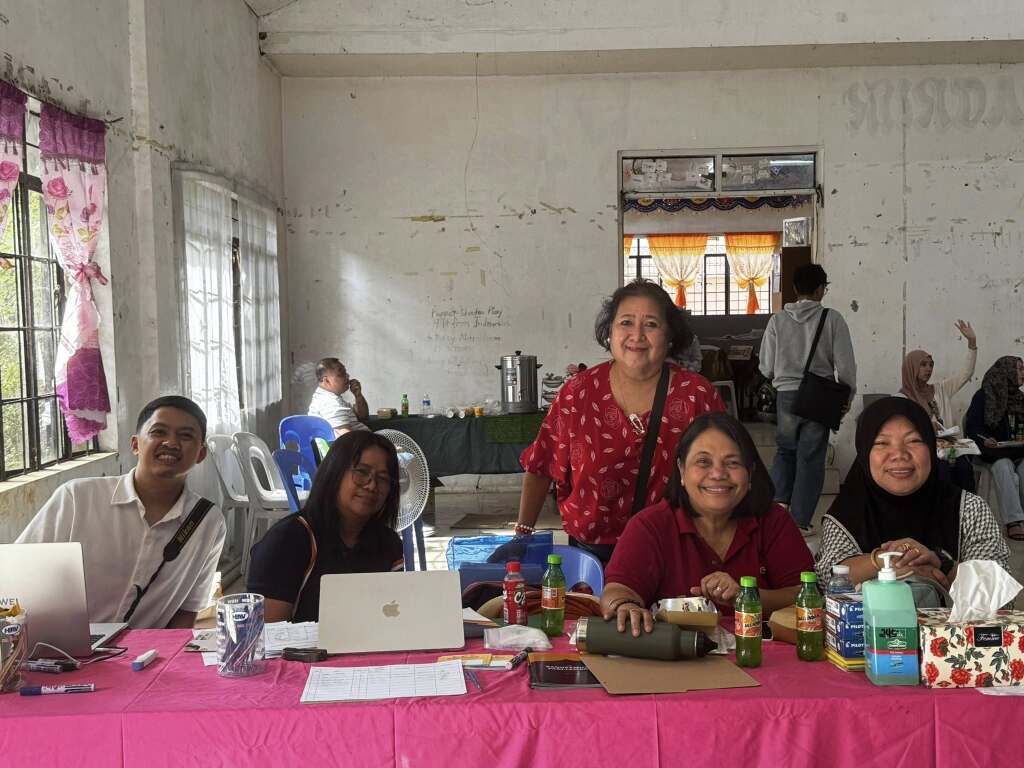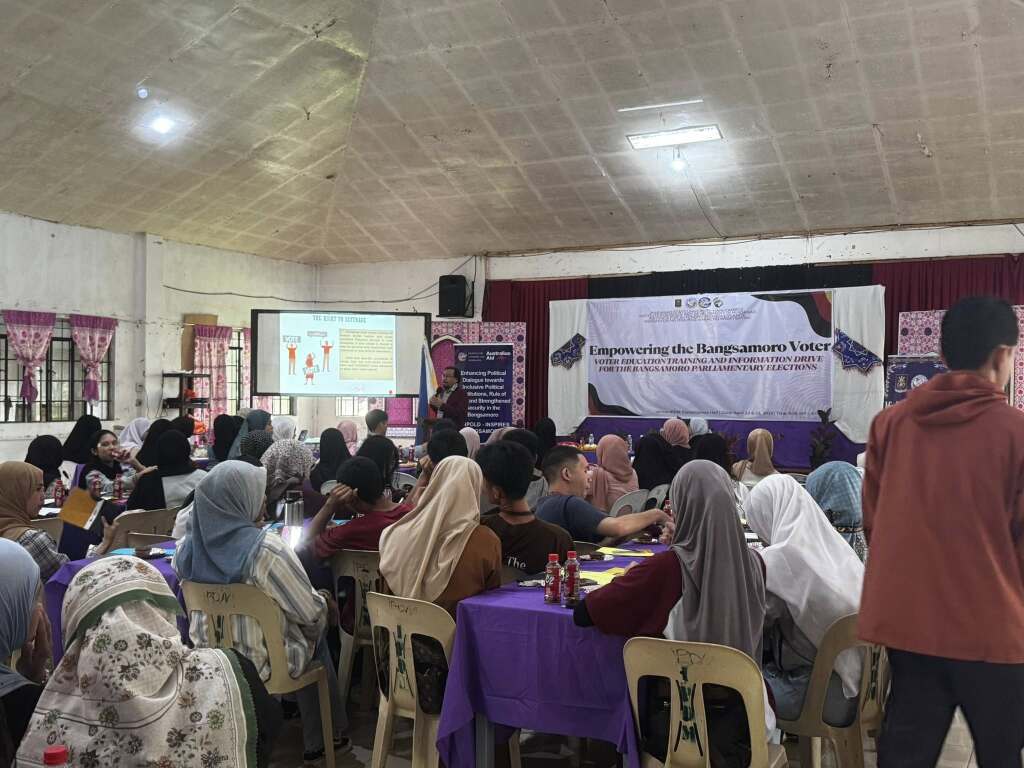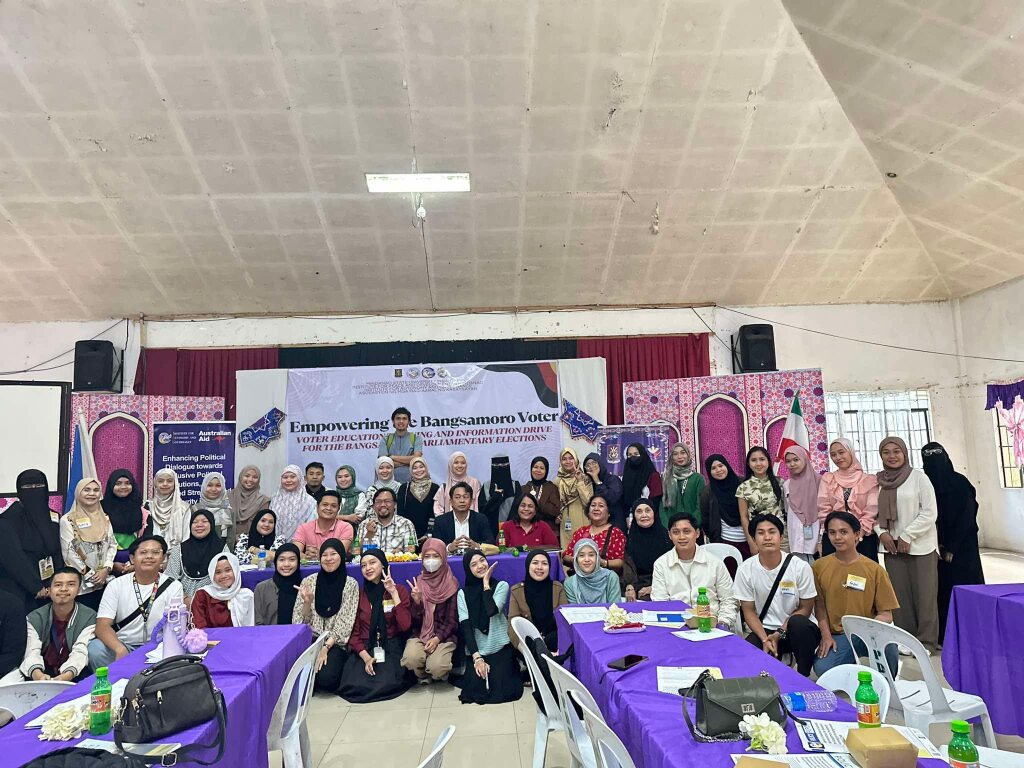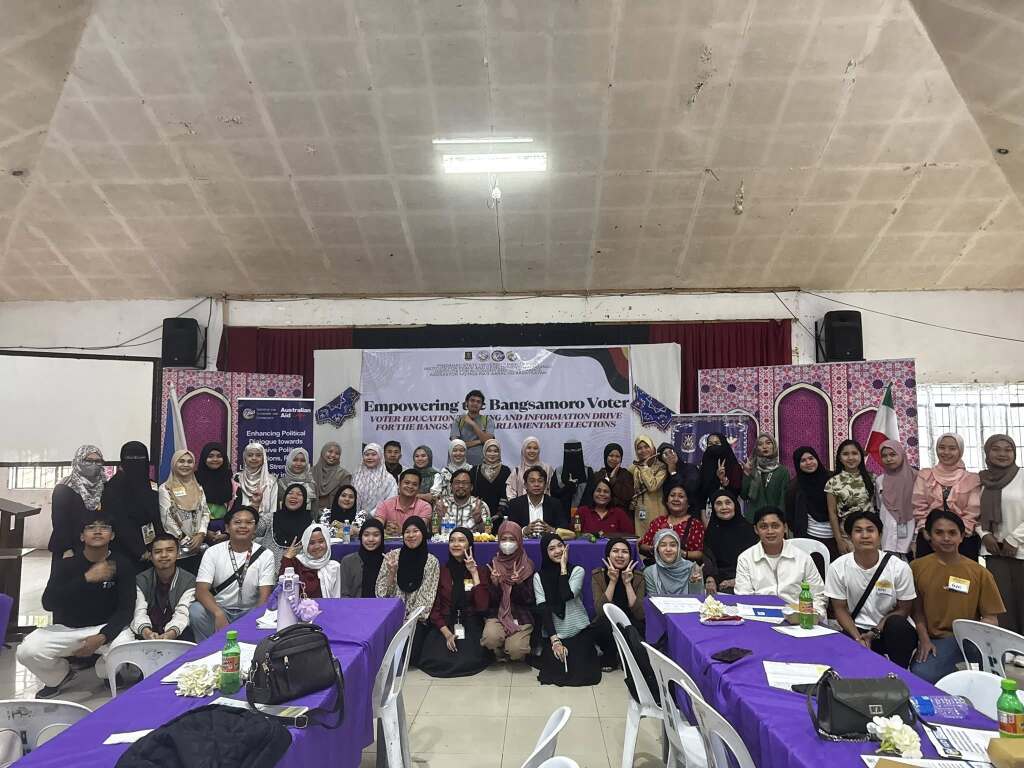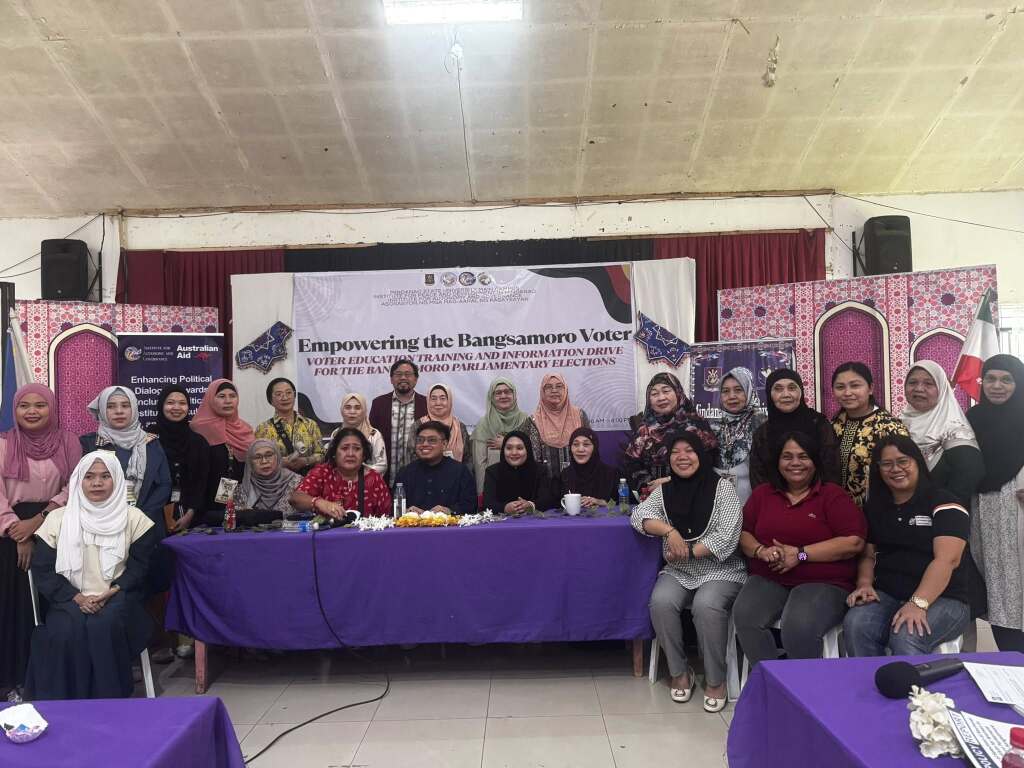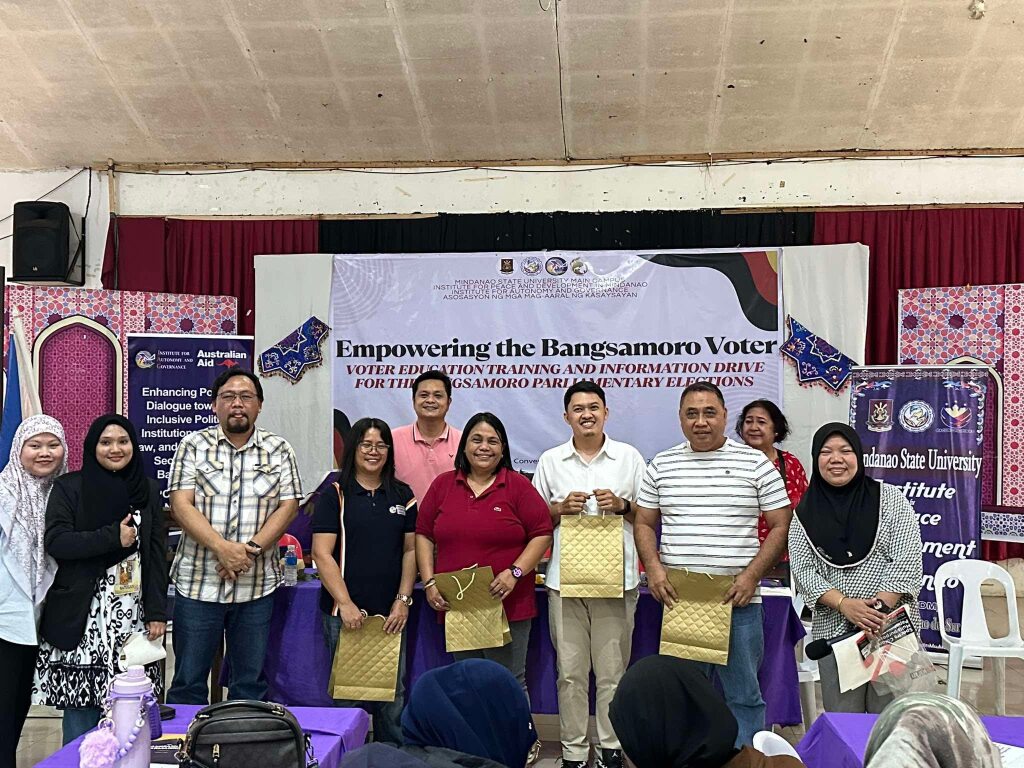Aliah P. Cali-Pascan, DPA, JD
IPDM Convergence Hall, Marawi City, BARMM – A palpable sense of anticipation and empowerment filled the IPDM Convergence Hall over two days, April 22nd and 23rd, as the Institute for Peace and Development in Mindanao (IPDM) and the Institute for Autonomy and Governance (IAG) jointly spearheaded a comprehensive Voter Education Training and Information Drive for the upcoming Bangsamoro Parliamentary Elections. This vital initiative, generously funded by the Australian Government (AUSAID) and supported by the Assosasyon ng Magaaral ng Kasaysayan (AMKa) aimed to equip Bangsamoro voters with the knowledge and understanding necessary to actively and meaningfully participate in this historic electoral exercise.
The two-day event brought together a diverse group of stakeholders, including community leaders, civil society representatives, youth advocates, and aspiring voters from across the Bangsamoro Autonomous Region in Muslim Mindanao (BARMM). The program was meticulously designed to cover crucial aspects of the electoral process, the significance of the Bangsamoro Organic Law, and the importance of making informed choices at the ballot box.
The first day of the training was hosted by Aliah P. Cali-Pascan, who set a dynamic and engaging tone for the proceedings. The program commenced with an inspiring opening statement from the Master of Ceremony, highlighting the pivotal role of each Bangsamoro voter in shaping the region’s future. This was followed by insightful welcome remarks delivered by ED Acram Latiph Ph.D, who provided a concise yet crucial overview of the Bangsamoro Organic Law (BOL) and underscored the profound significance of the inaugural parliamentary elections under this new framework. ED Latiph eloquently articulated how the BOL, a product of years of aspiration and struggle, has paved the way for greater self-governance and the opportunity for the Bangsamoro people to chart their own destiny.
The training modules on the first day were skillfully facilitated by Professor Khayronesah Abbas, ensuring a smooth flow of information and encouraging active participation from the attendees.
The second day of the event continued with the same energy and focus, expertly hosted by Professor Corazon Mangelen. The training modules built upon the foundational knowledge shared on the first day, delving deeper into specific aspects of the electoral process. The facilitation on the second day was led by Manal Hadjinoor of AMKa, who effectively guided the discussions and ensured that participants had ample opportunity to engage with the resource persons.
The panel of distinguished experts shared their knowledge across the two days. Professor Naifah Batugan expertly demystified the intricacies of the Bangsamoro Parliamentary Elections, elucidating the differences between presidential and parliamentary systems and highlighting the unique features of the upcoming polls. Her session provided much-needed clarity on the structure and function of the new government.
Atty. Jashim Abdulrachman then guided participants through the critical process of “Choosing Wisely: Evaluating Candidates.” He emphasized the importance of scrutinizing candidates’ platforms, track records, character, and vision for the Bangsamoro, empowering voters to look beyond mere popularity and make informed decisions based on merit and genuine commitment to the region’s progress.
The practical aspects of exercising one’s right to vote were thoroughly covered by Atty. James Latiph during his module on “Your Vote, Your Right: The Voting Process.” He meticulously explained the registration procedures, the steps involved in casting a ballot, and the safeguards in place to ensure a smooth and accessible electoral experience for all eligible voters.
The crucial topic of “Safeguarding the Ballot and Promoting Clean Elections” was addressed by Professor Almahdi Alonto. He shed light on the mechanisms designed to ensure the integrity of the electoral process, the importance of transparency and accountability, and the role of civic vigilance in preventing fraud and upholding the sanctity of the vote.
Throughout the two days, participants actively engaged in discussions, asked pertinent questions, and shared their perspectives, fostering a vibrant atmosphere of learning and civic engagement. The collaborative efforts of IPDM and IAG, with the generous support of AUSAID and the active facilitation of AMKa, underscored a shared commitment to empowering the Bangsamoro citizenry and strengthening democratic processes in the region.
This Voter Education Training and Information Drive serves as a significant step towards ensuring that the upcoming Bangsamoro Parliamentary Elections are characterized by informed participation, responsible decision-making, and ultimately, a true reflection of the will of the Bangsamoro people. The knowledge and insights gained by the participants will undoubtedly contribute to a more engaged and empowered electorate, laying a strong foundation for the future of the Bangsamoro Autonomous Region in Muslim Mindanao
